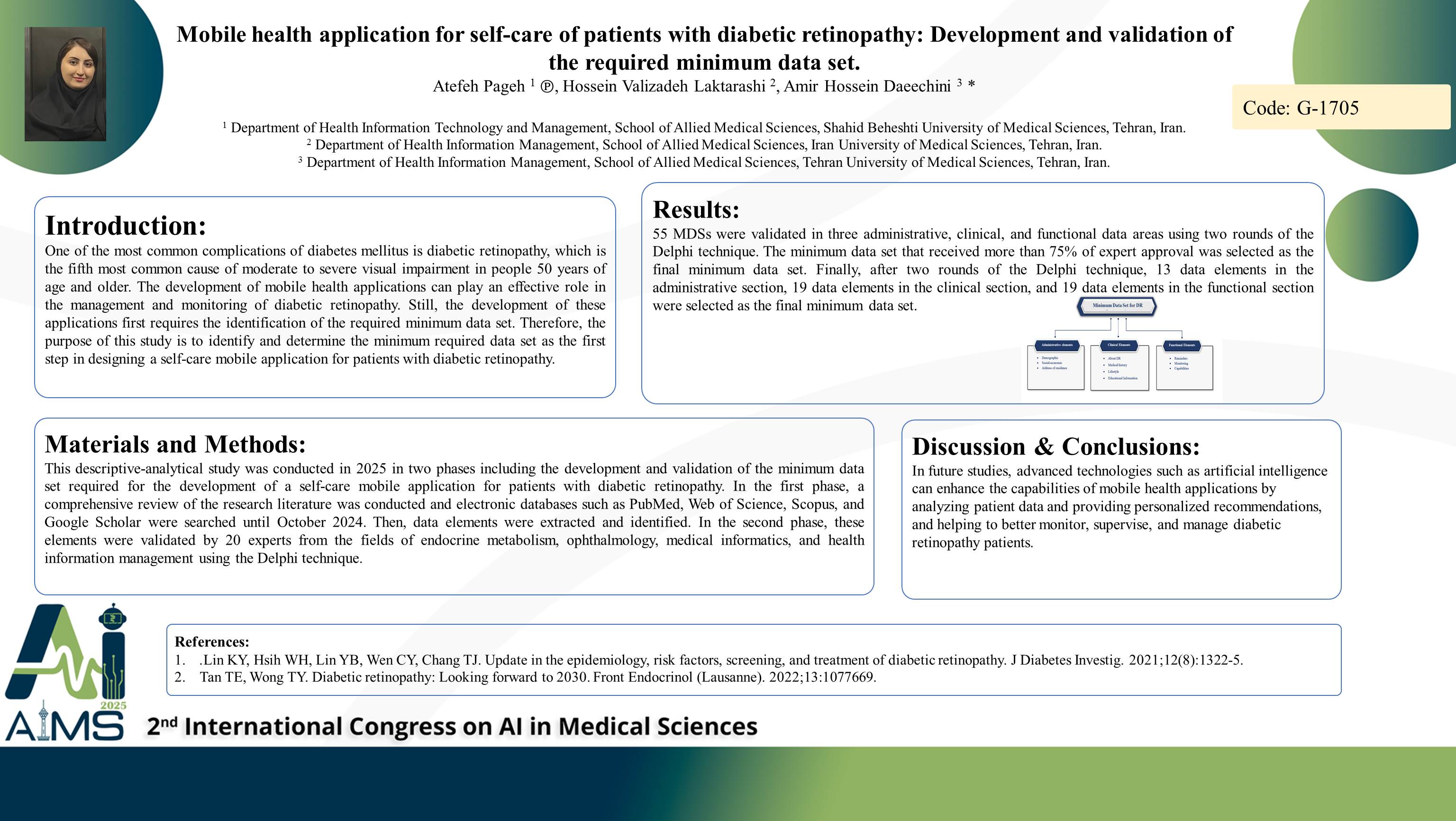برنامه کاربردی سلامت همراه برای خودمراقبتی بیماران مبتلا به رتینوپاتی دیابتی: توسعه و اعتبار سنجی مجموعه حداقل داده های مورد نیاز
کد: G-1467
نویسندگان: Atefeh Pagheh ℗, Hossein Valizadeh Laktarashi, Amir Hossein Daeechini *
زمان بندی: زمان بندی نشده!
برچسب: سیستم های تصمیم یار بالینی
دانلود: دانلود پوستر
خلاصه مقاله:
خلاصه مقاله
Background and aims: One of the most common complications of diabetes mellitus is diabetic retinopathy, which is the fifth most common cause of moderate to severe visual impairment in people 50 years of age and older. Mobile health applications enable continuous monitoring, provide patient-centered care, and enhance the participation and independence of patients with diabetic retinopathy. The development of mobile health applications can play an effective role in the management and monitoring of diabetic retinopathy. Still, the development of these applications first requires the identification of the required minimum data set. Therefore, the purpose of this study is to identify and determine the minimum required data set as the first step in designing a self-care mobile application for patients with diabetic retinopathy. Method: This descriptive-analytical study was conducted in 2025 in two phases including the development and validation of the minimum data set required for the development of a self-care mobile application for patients with diabetic retinopathy. In the first phase, a comprehensive review of the research literature was conducted and electronic databases such as PubMed, Web of Science, Scopus, and Google Scholar were searched until October 2024. Then, data elements were extracted and identified. In the second phase, these elements were validated by 20 experts from the fields of endocrine metabolism, ophthalmology, medical informatics, and health information management using the Delphi technique. Results: 55 MDSs were validated in three administrative, clinical, and functional data areas using two rounds of the Delphi technique. The minimum data set that received more than 75% of expert approval was selected as the final minimum data set. Finally, after two rounds of the Delphi technique, 13 data elements in the administrative section, 19 data elements in the clinical section, and 19 data elements in the functional section were selected as the final minimum data set. Conclusion: In future studies, advanced technologies such as artificial intelligence can enhance the capabilities of mobile health applications by analyzing patient data and providing personalized recommendations, and helping to better monitor, supervise, and manage diabetic retinopathy patients.
کلمات کلیدی
Diabetic Retinopathy, Mobile Health, Self-care
